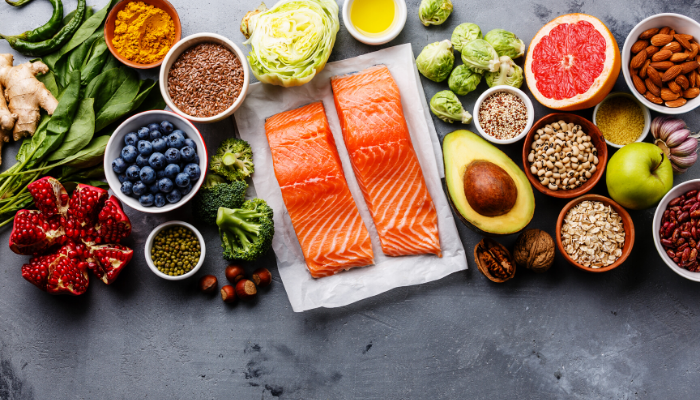There will always be uncontrollable factors that contribute to our cardiovascular health. We can’t help our age, our family history, or a number of from-birth conditions that contribute to heart disease. However, it’s so important to do our best with the things that we can control. This includes getting exercise, reducing stress, and yes, eating right. Leah talks about the most important components of a heart-healthy diet.
Why is your diet important for your heart health?
Food provides so much more than just energy in the form of calories. Food provides each and every cell in our body with information, which has the ability to impact our genes. Food has the power to provide vitamins, minerals, and antioxidants to help us live long, healthy lives, but it can also make us sick and lead us on a path to chronic disease. Therefore, it is important to choose wisely when it comes to how you fuel yourself.
What are some key nutrients and vitamins that will help support heart health?
Some of the key nutrients that support heart health include omega-3 fatty acids, magnesium, fiber, and vitamin D. Keep in mind that your organs are not mutually exclusive, but rather work in a system along with one another, as well as your vasculature and tissues. A heart-healthy diet improves the functioning of this entire system. Foods that are good for your heart are also good for your brain, good for your lungs, and on and on.
What kind of foods would you recommend for someone who is trying to lower their cholesterol?
Fiber is KEY when it comes to lowering cholesterol. Fruits, vegetables, beans, and legumes are all incredible sources of dietary fiber, and a diet high in these foods is really important to maintaining healthy cholesterol levels.
What foods should be included in a person’s daily diet if they are working to prevent heart disease?
Vegetables, fruits, nuts and seeds, beans and legumes, whole grains, and omega-3 containing fish are great foods to include if you’re looking to prevent heart disease. It’s also important to note that processed foods that come packaged, canned, or frozen are often loaded with high levels of sodium, food additives, and artificial ingredients that can be detrimental to your health, so be sure to read your food labels! Furthermore, you should establish a routine that places a high value on quality sleep and physical activity. Both are imperative for preventing, not just heart disease, but other chronic illnesses as well.
Any heart-healthy recipes you’d like to share?
These protein-packed veggie burgers are delicious and full of heart-healthy ingredients!


Recent Comments